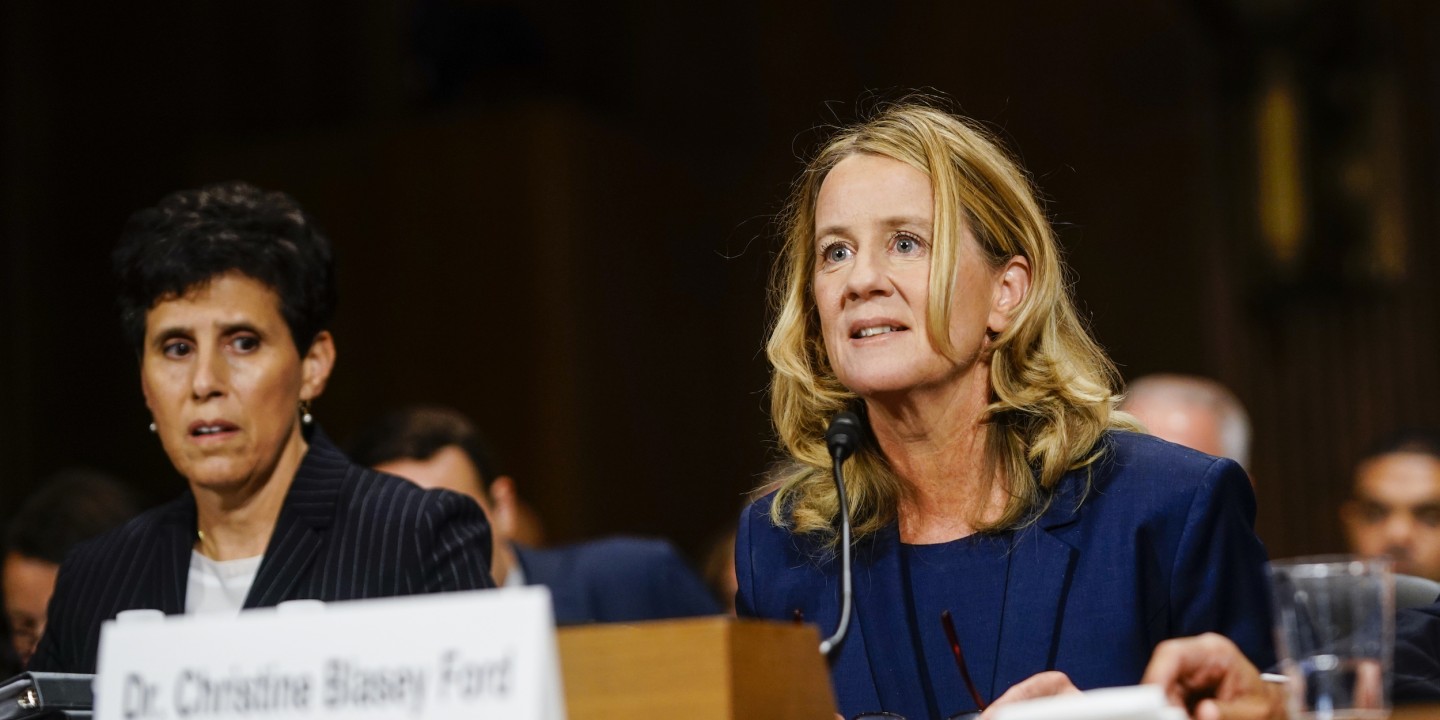The power of Christine Blasey Ford’s testimony
Ford inspired survivors to tell their own stories of sexual violence. It’s up to the rest of us to respond.

Christine Blasey Ford called it her “civic duty” to tell government officials about her memory of being sexually assaulted by Brett Kavanaugh. While publicly recounting the details of a traumatic attack goes beyond the typical call of civic duty, her testimony has indeed been an enormous public service. It has advanced the painful but necessary work of cracking open the façade that hides America’s culture of sexual violence.
To begin with, Ford forced Kavanaugh, the U.S. Senate, and the entire nation to confront the powerful message of the Me Too movement—and in doing so, she dramatically exposed some of the powerful forces arrayed against those who speak out about sexual assault. Ford’s courage in appearing before the Senate Judiciary Committee was obvious to anyone who witnessed the hearing, as were the steep personal costs for her and her family. Equally obvious was how vulnerable someone in Ford’s position is, and how easily those in power can defend themselves by dismissing or ignoring survivors of sexual assault.
Read our latest issue or browse back issues.
Ford’s courageous testimony also inspired survivors around the country to tell their own stories. In the 72 hours following the Senate Judiciary Committee hearing, calls to the National Sexual Assault Hotline spiked by 338 percent. Anecdotal evidence on social media indicates that many survivors were inspired by Ford’s testimony to talk with their pastors about assaults they had experienced. In a more public setting, Fox News anchor Chris Wallace reported that his two daughters were moved by Ford’s story to talk with him for the first time about things they had experienced in high school.
None of this disclosure is easy or comfortable. Listening to a survivor’s story of sexual assault can be a harrowing experience, particularly for those who have experienced traumas of their own. Reliving one’s own experience of sexual assault can be excruciatingly painful, and retelling the story to others can be terrifying, as Ford’s testimony demonstrated.
Making space for these stories in the public sphere is a necessary step toward the kind of widespread change that Me Too is calling for. Because of Ford’s courage to step forward and tell her story, countless people have taken a step toward healing, and countless others have learned more about the realities of sexual violence that one in three American women face. As Connecticut senator Richard Blumenthal said during the hearing, Ford has given Americans a teaching moment. She has encouraged women to come forward and “inspired and enlightened men in America to listen respectfully to women survivors and men who have survived sexual attack.”
The Rape, Abuse and Incest National Network, which runs a sexual abuse hotline, reports that every 98 seconds an American is sexually assaulted. Changing these statistics will require nothing less than a transformation of cultural norms and expectations regarding gender, power, and privilege. Engaging in that work is everyone’s civic duty.
A version of this article, which was edited October 5, appears in the print edition under the title “A teaching moment on sexual violence.”






